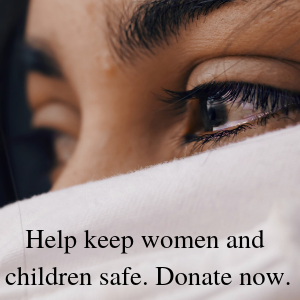Safe at Home
By: Lesley-Ann Sparkes
April 3rd 2020
“You are not stuck at home, you are safe at home.”
This is the slogan circulating throughout the media to reassure citizens currently self-isolating to limit the spread of COVID-19. Unfortunately, there is an extremely vulnerable demographic that this message neglects – women and children living with domestic violence. Not only does isolation significantly increase rates of abuse, so does the substantial rise in depression, anxiety, irritability, and substance abuse associated with the present uncertainty the world is facing. For some, this can be a deadly combination.
Erin Lee, the Executive Director for Lanark County Interval House and Community Support (LCIHCS) discusses this dangerous reality stating, “While self-isolation is a reasonable tool to reduce and stop the spread of this deadly virus, it increases the risk for women living in violent homes already.” She encourages us to consider the additional stressors of having children at home full-time, as well as financial uncertainty, and how this might propel the occurrence of violent encounters. For this very reason, women’s shelters across the country are seeing a pronounced increase since the mandated isolation was implemented in March of this year.
Experience shows that any amount of structure, or time away, can offer minor relief from toxic situations. Since this is no longer an option, women and children are being forced into a confined environment with their abuser. Brianne Luckasavitch, Victim Advocate and Public Education Coordinator with LCIHCS discusses the role of control in abusive scenarios asserting, “We know that control plays a large role within violent relationships and when there is a perceived loss of control, abusers will hold on tight to what they feel they do have control over; their partner and children.” The concern then lies in how women and children experiencing abuse can be adequately supported during the current state of emergency.
The good news is that resources are still available in Canada, despite the current pandemic. Prime Minister Justin Trudeau has disclosed that additional funding will be released to support shelters during self-isolation, when staying home is simply not an option. Best practice for women that find themselves in an abusive situation at this time is to formulate a safety plan and an exit strategy. As articulated by Erin Lee, “Survivors know the lay of the land. They navigate violence or the threat of violence every day, and they are the experts in their experience…they have strengths to work with and we are on the other end of the line to listen and support their next steps.” If risk is high, women are encouraged to call 911 as first responders are trained to manage these situations and often work in conjunction with victim support services.
Residents also play an important role as they are asked to be mindful of signs of abuse, and lend support whenever possible. This includes checking in with family, friends, and neighbours at a safe distance, and looking for signs that might indicate violence. Should a victim confide in you directly, arm yourself with resources and support services that are available within the community. For example, the Lanark County Interval House is a 24-hour emergency shelter for women and children experiencing domestic violence, located in Carleton Place. This women’s shelter is still fully operational, continuing with its efforts to curb abuse by reaching out to clients to support in safety planning, and implementing offsite resources. This includes shelter intake, whenever possible, to protect victims of abuse. To ensure that everyone’s safety is maintained, additional intake screening measures have been employed to help limit the spread of COVID-19.
Beyond the LCIHCS, most communities will have a local women’s shelter or survivor support program that can work with the client to help develop a plan to keep her as safe as possible. They can also provide information on resources available to help negate the impact of COVID-19 like that of food banks and financial support.
If you wish to support your local women’s shelter, many organizations are still accepting donations so they are better able to support women and children in need during COVID-19.
Residents of Lanark County can call LCIHCS’s 24/7 crisis line at 613-257-5960.
The current state of the world reminds us that showing compassion and care to those in need is what is truly important. Now more than ever, we need to rally together and do our best to manage this crisis. After all, if everyone does a little, no one needs to do a lot.

